The Webinar "Vector-Borne Diseases and Its Pathogens in Tropics and Subtropics Areas: Knowledge and Gaps" Organized by One Health & Implementation Research has been Successfully Held
The webinar "Vector-Borne Diseases and its Pathogens in Tropics and Subtropics Areas: Knowledge and Gaps" organized by One Health & Implementation Research was successfully held on September 30, 2022.
Session 1:

Dr. Mustapha Debboun, who works in Delta Mosquito & Vector Control District, USA, chaired the first session. Two speakers, Dr. Karla Georges and Dr. Héctor Ochoa Diaz-López, gave wonderful talks.
Dr. Karla Georges comes from the School of Veterinary Medicine, the University of the West Indies Trinidad and Tobago, Trinidad and Tobago. She gave a report on tick-borne diseases in neo-tropical animals in Trinidad. The reported study is a starting point to encourage further investigations into the health of the neotropical population of the rainforest, which has a very close relationship with Trinidadian society and culture.
Topic: A Study on Tick-borne Diseases in Neo-Tropical Animals in Trinidad.
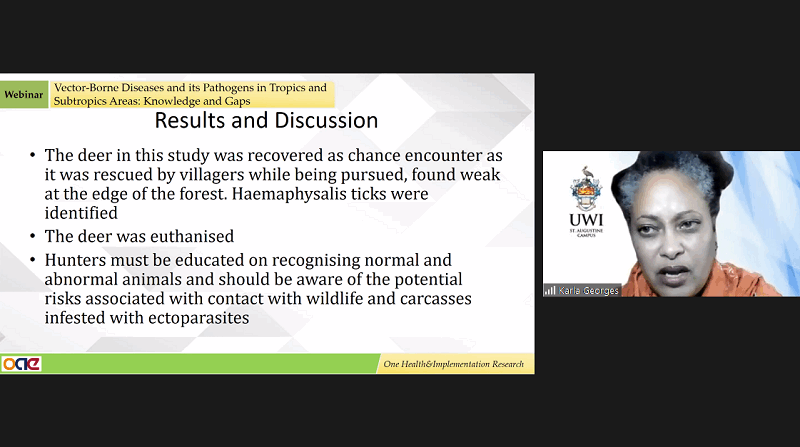
Dr. Héctor Ochoa Diaz-López and his colleague Mr. Daniel Velázquez from the Health Department, El Colegio de la Frontera Sur, San Cristóbal de las Casas, Chiapas, Mexico, talked about the control of Chagas diseases in America. The One Health approach is used to ascertain the ecological determinants that promote the occurrence of American trypanosomiasis and to analyze the biotic and abiotic factors present in the study areas.
Topic: Eco-epidemiological Research to Control American Trypanosomiasis Through the One Health Approach in Southern Mexico.
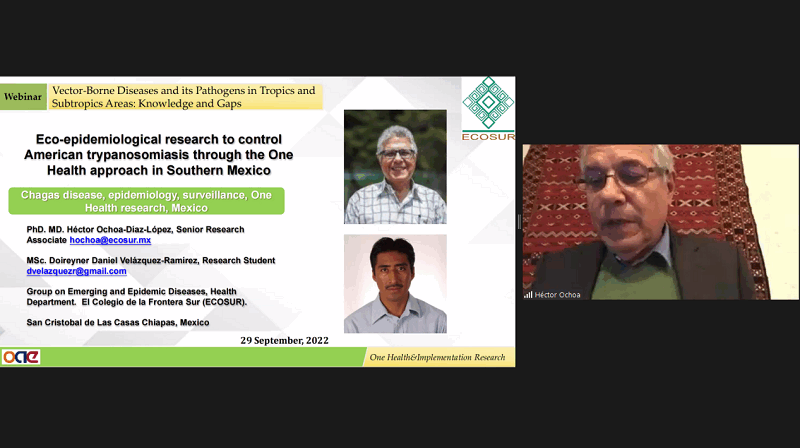
Session 2:
Prof. Olivier E. Sparagano, who comes from Department of Infectious Diseases and Public Health, City University of Hong Kong, China, chaired the second session.
Two speakers, Dr. Muhammad Sohail Sajid and Dr. Lydia Leonardo gave splendid talks on hot topics.
Dr. Muhammad Sohail Sajid comes from Department of Parasitology, University of Agriculture, Faisalabad, Pakistan. He talked about vector-borne diseases in the scenario in Pakistan and proposed the future prospects for Pakistan.
Topic: Knowledge and Gaps of Vector-Borne Diseases: Scenario in Pakistan.
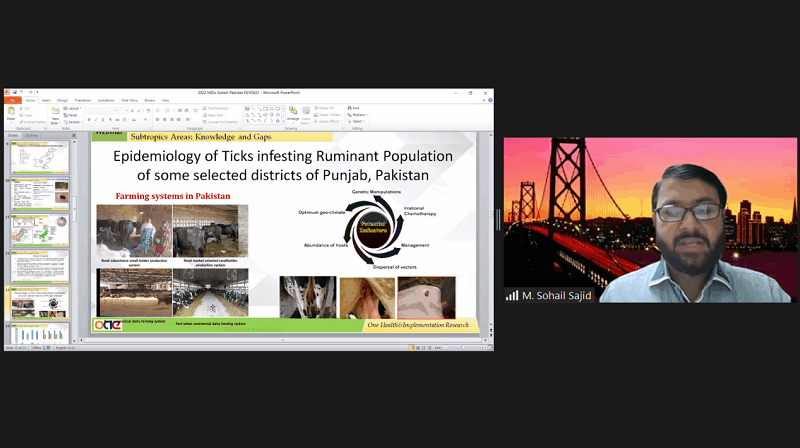
Dr. Lydia Leonardo, from the Office of Research Coordination, University of the East, the Philippines, gave a report on schistosomiasis in the Philippines. She talked about the current elimination program, which by 2016 has reduced the prevalence of the rate of schistosomiasis in endemic provinces below 1% and will increase the coverage of mass treatment to 85% per year in all endemic areas.
Topic: Schistosomiasis in the Philippines: Overcoming Challenges in Elimination Through One Health.
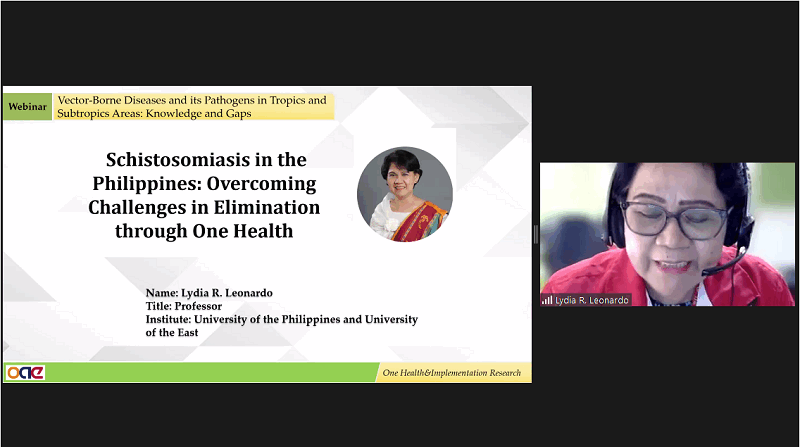
Session 3:
In the third session, Dr. Josephine Wanjiku Ngunjiri, who comes from Department of Biological Sciences, University of Embu, Kenya, reported on the management of neglected tropical diseases. She said that One Health is an approach that recognizes that people’s health is inextricably linked to the health of animals and the environment. Therefore, integrated management is the second pillar of WHO to control, eliminate and eradicate Neglected tropical diseases by 2030.
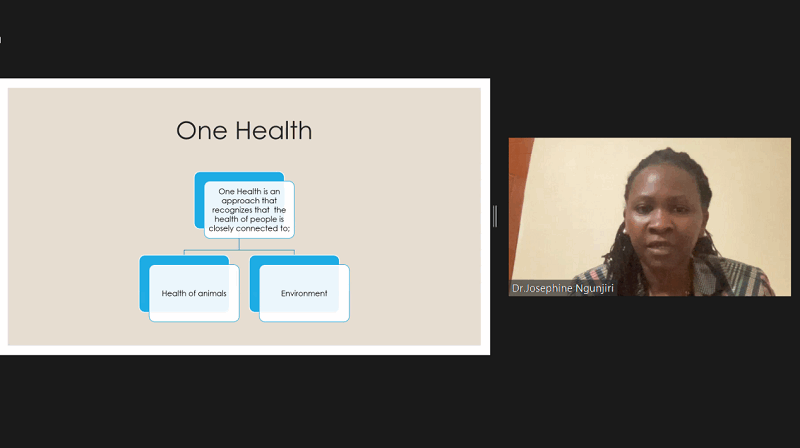
Dr. Josephine Wanjiku Ngunjiri invited Prof. Olivier A. Sparagano to introduce ticks and tick-borne diseases in Asia. Ticks are diverse in Asia and show a wide range of adaptations to their hosts, like many parasites. Therefore, holistic, multidisciplinary approaches and international collaborations are needed for the control.
Topic: Trends in Ticks and Tick-borne Diseases in Asia.
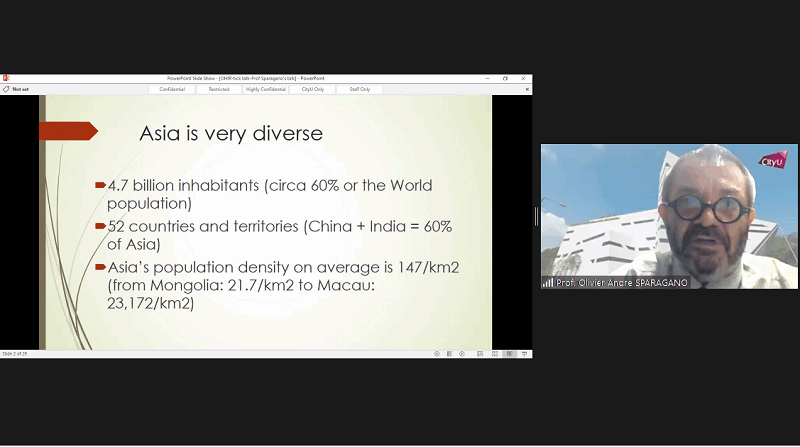
During the free discussion, speakers had a lively discussion about the following aspects:
Why do Opossums and Bats have the highest infections with T. cruzi(lifestyle, feeding style...)?
Were the ticks collected from deer H. longicornis?
What is next for your research programme on TTBD?
Has Plasmodium speciesbeen found in animals in Pakistan?
Has the same Rickettsia species been found in Buffalo, cattle, sheep or goat?…
Discussion Part
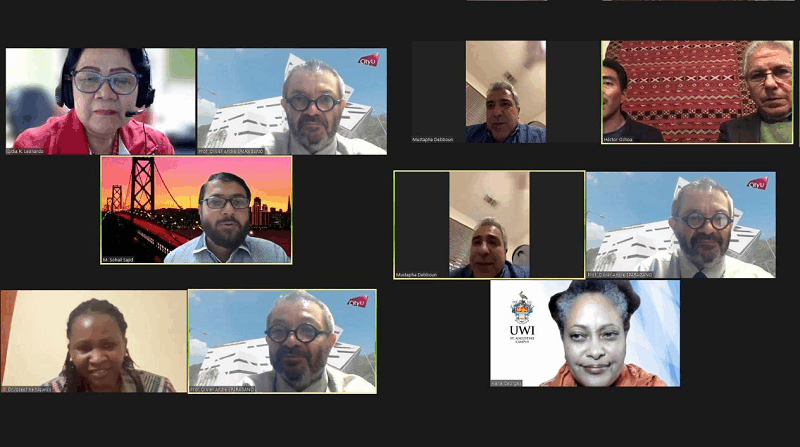
One Health & Implementation Research thanks the Chairs, Prof. Olivier A. Sparagano, Dr. Mustapha Debboun and Dr. Josephine Wanjiku Ngunjiri, for organizing this great webinar and appreciates all Guest Speakers’ substantial effort to make this webinar a great success.
Finally, we call for papers for the Special Issue led by the Chairs, "Vector-Borne Diseases and its Pathogens in Tropics and Subtropics Areas: Knowledge and Gaps". Welcome to submit your manuscript at: https://www.oaecenter.com/login?JournalId=ohir&SpecialIssueId=ohir220401.
Welcome more researchers and scientists to join the journal’s future webinars! Stay tuned for more wonderful webinars of the journal: https://oaepublish.com/ohir/webinars.







